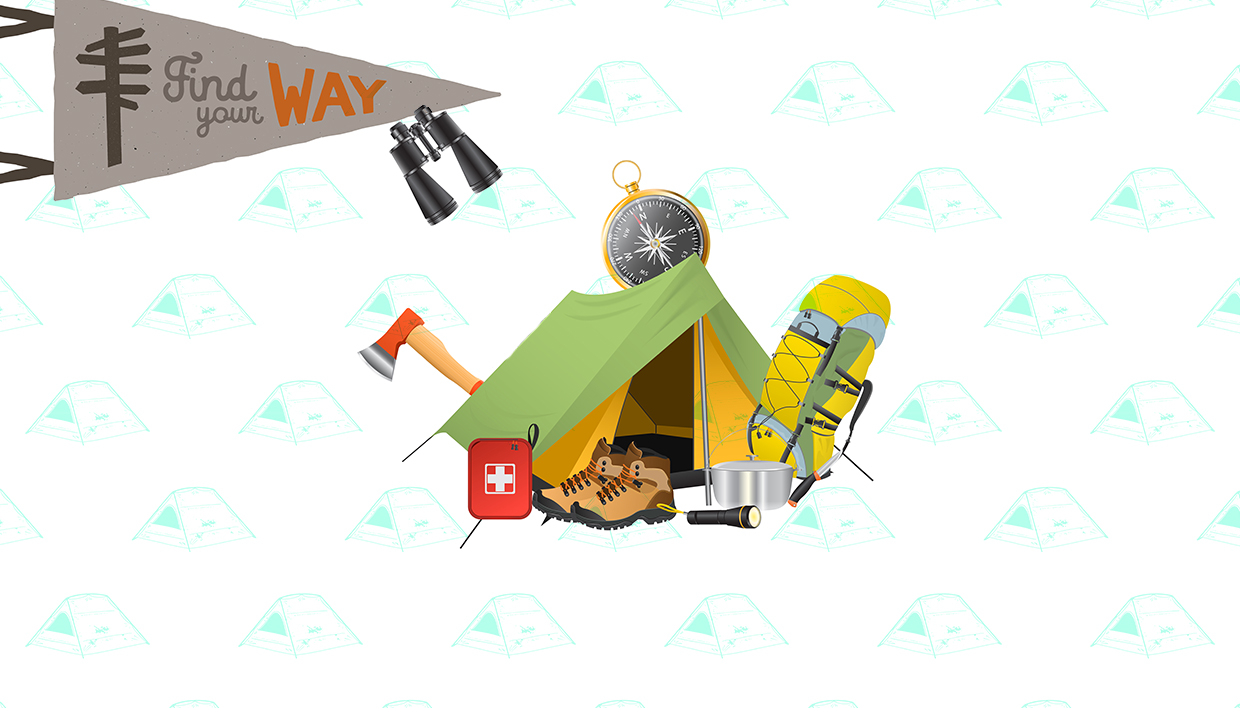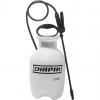Must-Haves for Your Campsite
Here is a great list from Outdoorish
If you’re camping solo and need a lightweight tenting solution for backcountry camping, you can’t go wrong with a one or two-person ultralight tent. Your back will thank you!
If you’re driving to your camping spot and need space for multiple campers, you’ll want to invest in a cabin-style tent that can house parties of six or more.
For a good night’s sleep, you need to separate your body from the hard, cold earth. For this, rely on a lightweight sleeping pad to provide the comfort and warmth you need.
You won’t get a good sleep without a warm, lightweight sleeping bag with a comfortable foot box at the bottom. A waterproof bag will guarantee a cozy night even if your tent leaks.
Don’t forget to support your head and neck overnight. Invest in an ergonomic neck pillow so you feel recharged and ready to go in the morning.
Staying up late is half the fun of camping. Embark on nighttime adventures with the help of a headlamp to help guide your way through the dark
You won’t want to spend much time at your campsite unless you have a comfortable place to sit. For that, rely on a folding high-back camping chair.
Not everyone’s a light camper. If you pack many miscellaneous items, bring a compression bag to keep your items safe, secure, and portable
An all-in-one mess kit, including a spork, flat-bottomed bowl, and thermal mug provides everything you need to devour your camp food.
Unless your campground has a picnic table, you need a sturdy surface to hold your gear and prepare your food. For this, trust a portable camping table.
Your headlamp will only get you so far. To illuminate your whole campsite and improve safety conditions, bring a 360-degree lantern to place on your camping table.
It’s never a bad idea to bring an emergency reserve of batteries to back-up your headlamp, lantern, flashlight, radio, and other essentials.
Never leave for a camping trip without a first aid kit equipped with topical antiseptic, gauze, band-aids, and itch relief ointment. Stuff it in your backpack and only take it out when needed.
Campsite Accessories
A blow-up air mattress can save you a lot of discomfort if you’re sleeping in a tent over multiple nights. An air mattress should be included on any car camping checklist.
Forested campsites are perfect for stringing a hammock. Tie a hammock up between two trees for a shady afternoon in the sun or a relaxing sleep under the stars.
Nothing can ruin a day in the bush like being kept up all night by the cold. Prevent nighttime shivers by investing in a thick thermal liner for your sleeping bag.
If you’re doing laundry or washing your towels and rags while camping, you won’t want to hang your clean clothes on a tree branch. Instead, hang a clothesline for a better dry.
Young families need a sleeping cot for infants and small children to safe soundly and warmly without being disturbed by the cold ground or scurrying animals.
If you can’t find the room to store all your equipment in your tent, consider picking up a rain tarp to keep your gear safe and dry during a rainstorm.
Don’t make a mess of your campsite. Instead, pick up a tablecloth and lay it over your picnic table so you can keep your site squeaky clean for the next set of campers.
Protect yourself from the sun during the hot summer months by hanging a sunshade over your tent, table, or campsite.
Send your tent poles through a perforated tent footprint to ensure your tent won’t puncture. Plus, having an extra layer between you and the ground will keep you warmer overnight.
Eating and Drinking
Backcountry campers have limited access to clean drinking water. Having a LifeStraw at the ready can make the difference between staying healthy or contracting a serious illness.
There are few things that will last longer than a cast-iron pan. Pick up a cast iron pan to fry your bacon and eggs in the morning, or steaks over the campfire in the evening
Keeping drinks cold and food hot is tricky when on the road. Fortunately, a Thermos container is an all-in-one food storage solution that insulates heat.
There’s no easy way to bake food in an open fire. A Dutch oven, however, takes some of the stress out of backcountry cooking and baking.
A tabletop grill provides a safe and flat surface to barbecue hot dogs, hamburgers, and whatever else you’ve brought along with you on your camping trip.
Unless you have propane, you need firestarter to conveniently cook food at your campsite. Use firestarter to save you a headache when it comes time to cook over the fire.
Storing your drinks, snacks, and food in a rolling cooler provides much-needed convenience and security while camping. Plus, no one wants a warm beverage at the beach.
Always carry a box of matches and a few butane lighters while camping so you don’t have to stress out over starting a fire.
Pour a bag of ice into your cooler to help keep your drinks and perishable food refrigerated. Ice can also be used to bring down swelling in case of injury.
Some things you can’t eat with your hands alone. Bring reusable plates and bowls with you to ensure a clean and environmentally-friendly camping experience.
Eating during a backcountry camping trip can produce a lot of garbage. Don’t leave a trace behind—bring trash bags with you so that you can haul your garbage to a disposal site.
Flipping steaks or sausages over a grill grate can be a serious challenge. That is, unless you have a trusty pair of tongs to safely reposition your food over a heated element.
Whether you’re making hash browns in the morning or boiled potatoes with dinner, a handheld manual potato peeler takes some of the stress out of your campground cooking routine.
Just because you’re at a campground and away from your kitchen doesn’t mean you can skimp out on taste. Be generous with seasonings and spices on your food.
Resealable bags can keep your food fresh and prevent it from oxidizing. If you plan ahead, you can also use Ziplock bags to bring pre-made food to your campsite.
If you cook with a cast-iron pan, bring a tough scrub pad to make sure you get every drop of grime and gunk off your cooking surface.
Pack a cutting board so you can cut meat, veggies, or whatever else you need to get your grub on. Best of all, cutting boards contain your mess so nothing spills onto the ground.
A folding spoon-fork hybrid utensil makes it easy to dig into, or slurp up, your favorite meal. Whether you’re eating a salad, soup, or steak, you can do it all with a spork.
A bag of high-calorie trail mix can be a lifesaver if you run out of food in the backcountry. Always keep a bag of hearty trail mix whenever you venture into the bush.
Bags of dehydrated food rations should be kept on an emergency basis. All you need to do is add water and voila, you’ve got edible food.
Survivalist Gear
Don’t go venturing into the woods without a canister of bear spray at the ready. Keep your bear spray in your tent overnight to protect yourself against bears and other intruders.
You need a long, thick rope to hang your food from if you’re camping in bear country. Suspending your food overnight keeps animals away from your campsite.
When disaster strikes and your equipment starts falling apart, trust a roll of duct tape to put it all back together. Plus, duct tape can patch holes in your tent.
A large hunting knife will keep you and your fellow campers safe if you run into an emergency. If you’re backpacking in the woods, you need a knife at the hip.
When you’re in the bush, you need to chop your own firewood. Bring along a freshly sharpened axe to safely cut wood at your camp.
Handheld folding knives (like Swiss Army knives) provide protection and utility for cooking, carving, and other recreational activities on the trail.
As a safety precaution, use a carabiner to hang your food pack overnight from a tree at least 200 feet away from your campsite.
Clothing Necessities
Without a large backpack (30L and up) it can be near-impossible to lug all your gear to camp. Make sure you choose a bag large enough to hold your meals on the trail.
Cold weather camping calls for long underwear. Bring at least one pair of whole-body thermal underwear to keep you warm and cozy during frigid nights.
Pack a hat with a visor to block the sun out of your heats and deflect heat and harmful UV rays away from your forehead.
Wet feet can ruin a hiking trip. Bring a pair of long Merino wool socks to keep your feet dry and comfortable no matter the weather.
When bugs are out, you will be happy you packed a long-sleeved shirt. The more skin you cover, the less real estate you give bugs and insects on which to bite you.
A cool pair of shades not only look great, but they protect your eyes against damaging UV rays and help improve your vision on the trail.
If you’re camping near a body of water, bring swimming shorts along so you can cool off in the water when it starts heating up.
Not all shoes are appropriate for the trail. Invest in a pair of hiking shoes to go the distance without slips or falls.
Roll up a rain jacket and stuff it in your camping pack so you can stay dry when it starts to pour.
Keep your feet safe and cut-free by wearing a pair of water shoes when you’re getting your feet wet at the beach.
Ancillary Camp Items
A short rope can act as a guy line for your tent. When tightened, a guy line stabilizes your tent and keeps it secure on the ground during storms.
A stainless-steel multi-tool lets you make emergency repairs to your equipment without having to dig through a toolbox.
Tent stakes can easily bend or snap in hard ground. Pack a few extra stakes to ensure that your tent stays firmly planted.
Your clothesline won’t be of much use unless you have clothespins with which to secure your clothing to the line.
Illuminate your campsite in a soft, yellow glow with the help of small, potted tea candles. This way, you can save the batteries in your lantern.
Scented citronella candles repel bugs and other unwanted visitors from your campsite. Light one on your picnic table and watch as insects scurry away.
Must-Have Small Items
DEET-containing bug repellent spray will keep mosquitoes, hornets, and flies at bay. Not only will this make you more comfortable, but also safer by reducing the risk of bloodborne disease.
A coat of high-SPF sunscreen will block out dangerous UV rays from the sun, keeping your screen free of burns and sun damage.
A supply of hand towels will keep your campsite sanitary when cooking and washing, and can help control messes and spills.
You don’t need a smartphone when you’re in the bush, but it’s probably a good idea to bring along a basic cell phone for making emergency calls.
From freight trains and transport trucks to crows and wasps, campgrounds can sometimes produce a lot of unwanted noise. Bring ear plugs to block out the noise pollution.
You never know when your electronic devices might run out of juice. Keep a battery bank on-hand to ensure 24/7 access to electronics in an emergency.
A simple battery-powered flashlight should be a must-have item on any camper’s packing list. Your flashlight should be lightweight and always stored with your regular camping supplies.
Essential Hygiene Items
A bar of soap not only keeps your hands clean for when you’re handling food, but can also be used in a lake or tap to wash your body.
Female campers should always bring feminine products like tampons or pads in the event of unexpected menstrual cycles.
A container of dish soap lets you camp with confidence knowing that your plates and cooking gear are safe and sanitary.
An oversized basin-style bucket lets you clean your clothes or dishes in a sanitary tub without spills or messes.
Any outdoor adventure requires deodorant. Whether you’re hiking, mountain biking, canoeing, or whatever else—make sure you smell good while doing it.
A vacation is no excuse to skip out on oral hygiene. Whenever you camp, make sure you scrub your teeth before and after sleeping.
Campfire food can get messy. Pack a stack of napkins to minimize the mess from your hot dogs, chili, or s’mores.
A hanging shower device can help you rinse off after a sticky day in the sun, or a rugged day on the trail.
Personal Items
As the saying goes, “leave nothing but footprints, take nothing but memories.” When you’re out in the bush, a camera can help you preserve memories that last a lifetime.
Wearing a sleep mask or eyeshades overnight can help block out unwanted light pollution, including moonlight or starlight.
When nature calls, use baby wipes to clean up the mess and keep your body hygienic and clean at all hours of the day.
Board games can help pass the time on rainy days. Games such as Jenga, Scrabble, and Monopoly can be lifesavers when you’re stuck in the tent all day.
There’s nothing better than sitting around the picnic table with some of your closest friends playing a game of cards. Bring a deck to keep yourselves entertained during slow days.
You can’t roast marshmallows or make s’mores unless you bring roasting skewers. Bring at least two metal skewers to keep marshmallows or sausages roasting throughout the night.
Additional Campsite Items
You can’t build a fire without a steady supply of logs. Bring bags of firewood with you, or chop your own, if you want to cook without a stove.
You never know when a few spare bungee cords might come in handy. If you need a make a last-ditch repair to your backpack or cooler, sometimes bungee cords can save the day.
If you’re venturing into unknown territory, you should have a local field guide with you. A field guide can inform you about dangers in the area.
If your electronics break, you can rely on your compass to guide you to safety. Pair your compass with a map to find your way back to camp
Lightweight water bottles, as well as plates bowls, are must-have items for backpacking. Even shaving a few pounds off your overall load can make a world of difference.
When you’re rained out, curling up in the tent with a novel can make you feel right at home. It’s always a good idea to pack a book or two in your overnight bag.
There are few things better than listening to music around a campfire. Bringing a portable Bluetooth speaker lets you listen to your favorite tunes no matter where you are.
It’s never a bad idea to bring a folksy musical instrument like a guitar, ukulele, or harmonica to jam out with around the campfire.
Nothing beats bird-watching and sightseeing with a pair of high-powered telephoto binoculars. Pack them on your next bird-watching adventure and notice the difference they make.



















Comments